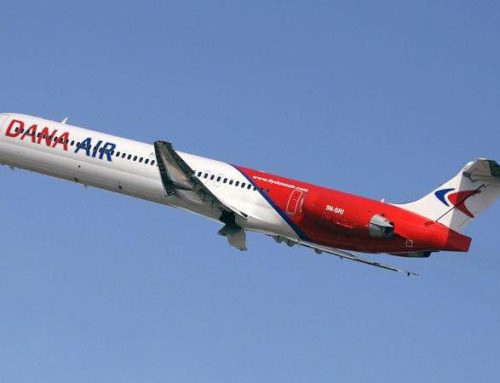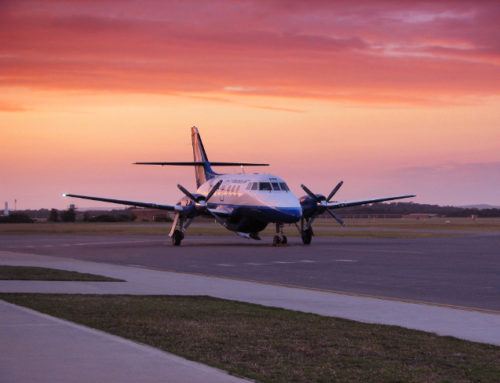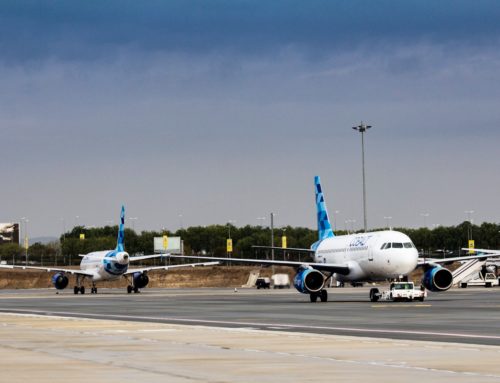An interview with Transaero Deputy General Director Dimitriy Stolyarov.
Transaero is the second largest airline in Russia. Privately owned the airline currently operates 95 aircraft with orders in place for the Airbus A380 and the Boeing Dreamliner. In this interview Transaero’s Deputy General Director Dimitriy Stolyarov talks about the challenges running an airline in Russia, the Russian aircraft manufacturers and Transaero’s first Airbus A380 destinations.
This interview was originally published in German by Austrian Aviation Net.
 Transaero Deputy General Director Dimitriy Stolyarov ©: Jan Gruber
Transaero Deputy General Director Dimitriy Stolyarov ©: Jan Gruber
ch-aviation: Transaero is the only operator of the Boeing 747 in Russia. You have also ordered the Airbus A380. What have you done to prepare for its delivery?
Stolyarov: We expect the first A380 to be delivered to the airline in 2015 and I‘m really proud that Transaero will be the first, and so far the only, Russian operator of this type of aircraft. We were also the first Boeing 747 operators in Russia. Our team has already made a lot of efforts to prepare for a successful launch of the A380 services, including crew training.
ch-aviation: Have you already made plans as to which destinations will be served by the A380?
Stolyarov: We will operate the A380 on routes with high passenger density. So, it will be used on routes to leisure destinations such as Thailand, Spain or even the United Arab Emirates. We will also operate the A380 on domestic routes including those from Moscow to Vladivostok.
ch-aviation: Can you break your passenger traffic down for us in terms of domestic and international traffic?
Solyarov: We currently focus on the international market. About 80 percent of our passenger traffic accounts for international routes and 20% for domestic services.
ch-aviation: Who are your main competitors in Russia?
Stolyarov: As we currently serve 190 routes, we have multi-national competition, not just Russian. Aviation is an international business, so the airline competes with different airlines at each particular airport we serve.
ch-aviation: Transaero has been a longtime Boeing operator. But, with the introduction of the Airbus A380 you will suddenly begin operating Airbus aircraft for the first time. How does your Airbus A320neo order tie into this?
Stolyarov: Well, currently 95% of aircraft in our fleet are Boeing. However, we’ve considered other alternatives and offers in the market. The airline has required a new aircraft to be ordered and we’ve decided to order the Airbus aircraft. Airbus has made a very good offer, and this is certainly not a deviation in our development.
But, while it makes no difference to passengers whether they travel onboard a new Boeing or Airbus aircraft, there is a marked change for the pilots, who will now have to get accustomed to the Airbus side-stick. And, since we’re set on operating the Airbus A380, it makes sense to introduce the new Airbus A320neo alongside it.
ch-aviation: You talk about a good offer from Airbus. Does that mean that pricing was a critical facet of the deal?
Stolyarov: Of course price is important. We’ve agreed on good terms and have got a good offer from Airbus.
ch-aviation: Transaero operates three Tupolev 214s in addition to two Tupolev 204 freighters. What is your experience with the aircraft?
Stolyarov: It’s possible to compare the Tupolev 214 with the Boeing 757: Their length, capacity and range are all nearly the same. These aircraft are absolutely safe and meet to the highest international safety requirements. Our Tu-214 aircraft’s interiors were entirely produced in Germany, so from this point of view, there is no difference between the two types. In terms of fuel consumption, the 757 is a bit more efficient.
ch-aviation: Do you intend to order further TU-214s?
Stolyarov: We ordered ten Tupolev 214, however the serial production of this type has been stopped.
Transaero Tupolev Tu-214 ©: Jan Gruber
ch-aviation: It seems bizarre that a manufacturer would cease production despite having existing orders…
Stolyarov: If Tupolev had received 100 orders, they would have continued the production. There were simply not enough orders.
ch-aviation: Russian aircraft are currently not very popular in Russia not to mention other countries. What, in your opinion, is the biggest obstacle Russian aircraft manufacturers face?
Stolyarov: That’s a very complex question to answer. During the years of the Soviet planned economy, there was no competition among Russian aircraft manufacturers. Aircraft were produced according to a centralised plan, not according to demand. With the fall of communism and the transition to a Free Market economy, however, the manufacturers found they were unable to compete. The production rates were very low and their aircraft were considered outdated and too costly to maintain. As it stands, the Russian aviation industry is slowly learning to become more competitive internationally following years of isolation. This can only come through experience.
ch-aviation: The Sukhoi Superjet is a new development from Russia. How many aircraft have you ordered?
Stolyarov: We have six orders with options for a further ten.
ch-aviation: The Sukhoi Superjet is comparable to the Embraer 190 and the Bombardier CRJ-1000. Why did you decide to order the Sukhoi Superjet?
Stolyarov: Transaero Airlines is mainly focused on long-haul flights. Through acquisition of the Sukhoi Superjet aircraft the airline has demonstrated its support to the Russian aircraft industry. We currently have no plans to fly regional routes, but we plan to operate the Sukhoi Superjets on short-haul routes, such as from Moscow to St. Petersburg or Kaliningrad. The Embraer 190, in my opinion, is more suited to regional routes.
ch-aviation: When will you take delivery of your first Sukhoi Superjet?
Stolyarov: In 2015, or more feasibly in 2016.
ch-aviation: Your latest financial results, published a few weeks ago, are really impressive. You are profitable and your revenue has seen strong growth. What makes you so successful?
Stolyrov: The market in Russia is currently growing exceptionally fast. While the global market has a growth rate of four to five percent per year, in Russia we have seen 15 to 17 percent per year. Transaero is ahead of that curve growing around 20 to 25 percent per year. We are very cost-efficient;our fares are based on our costs which we monitor very accurately.
Transaero Boeing B747-400 at the MRO facility in Moscow Vnukovo ©: Jan Gruber
ch-aviation: How are the fuel prices developing in Russia? Is fuel an important cost factor for Transaero?
Stolyarov: Like anywhere else, fuel costs are one of the most important factors to consider in the airline business. Last year the price of jet fuel increased by 20 percent and, unfortunately, it keeps on rising. The price of jet fuel at some Russian airports is actually much higher than at airports abroad.
ch-aviation: So does that mean that you are trying to refuel outside Russia?
Stolyarov: In Moscow we have three major international airports where we have the possibility of choosing between jet fuel suppliers. That is to say, the prices charged are internationally competitive. However, at some Russian airports where a single fuel supplier has a monopoly, we can do nothing except pay what they charge. In some cases our airplanes are refueling in stock.
ch-aviation: What is the reason why foreign-made aircraft, like Airbus or Boeing, are registered either in Ireland or in Bermuda?
Stolyarov: To begin with, when the first foreign-made aircraft were delivered to Russia, the authorities did not have enough qualified technical personnel to validate their airworthiness. Another point to consider is that Russia is not a signatory to the Cape Town Protocol. Legally-speaking, aircraft here are considered as real estate and are registered and taxed as such.
As a result, leasing companies and aircraft owners have tightened delivery terms applicable to aircraft delivered to Russia. Since international leasing firms do not recognize the Russian aircraft registry or the Russian regulatory authority as being in accordance with Chapter 83 of the Chicago Convention, Russia was forced to sign agreements with both Ireland and Bermuda. The supervision of aircraft is thus split between the two authorities.
Presently, nearly all aircraft manufactured outside Russia but flying in Russia are registered in either Bermuda or Ireland.
ch-aviation: How much higher would the costs be to register an aircraft in Russia?
Stolyarov: Costs don‘t matter. Since the registry is not acceptable by the European and US aviation communities of leasing companies, should an aircraft be registered in Russia for even a few months, international authorities would then list that aircraft as uncontrolled. Its records would be interrupted and its value would subsequently depreciate.
While Ireland and Bermuda are both deemed to be “off-shore”, this is in fact a misnomer. The authorities in both countries are very professional and carry out their inspections very stringently.
ch-aviation: Russia has an interesting law: airlines have to offer free catering. Is that true?
Stolyarov: That is correct. But there are more like that. Russian carriers have to refund the full flight fare if the passenger cancels his booking 24 hours before departure. Furthermore, passengers are entitled to have free luggage allowance on all flights by law. If a flight is cancelled, airlines have to pay for their taxi, accommodation and food. So as you can plainly see, low-cost carriers have no real chance to exist in Russia working in accordance with these laws.
ch-aviation: In Europe it´s common not to get served hot food in economy class. Germanwings and other carriers like WizzAir or easyJet fly to Russia and only offer food for sale. Is the law only valid for Russian carriers?
Stolyarov: Only for Russian airlines.
ch-aviation: Your first class is called Imperial Class. What is special about your premium product?
Stolyarov: Imperial Class took quite some years to develop and is constantly being improved. During the economic crisis of 2008/2009, we noticed a trend that people, who used to fly with private jets, were now booking scheduled flights and therefore required a high level of service.
Interior in Imperial Class consists of full-flatbed seats. Every passenger gets their own pajamas and bed linen. Catering is taken care of by Cafe Pushkin; the selection of beverages is lavish and diverse. Every passenger has a personal manager. Furthermore, the tableware is manufactured by a famous company from St. Petersburg. Every Imperial Class passenger has a limousine service from the city to the airport and vice versa. There is a free airport lounge too. Our feedback has been really good.
ch-aviation: How much is an Imperial Class fare, say from Moscow to New York?
Stolyarov: About USD3000 one-way.
ch-aviation: Is there high demand for the Imperial Class product?
Stolyarov: The load factors have been really good; feedback as well. On several flights, the class is usually fully booked though the average load factor is 78 percent. A lot of passengers are accustomed to travelling in comfort and are willing and able to pay for it.
Transaero Imperial Class ©: Jan Gruber
ch-aviation: What is the average load factor on Transaero flights generally?
Stolyarov: We have an average load factor of more than 80 percent.
ch-aviation: You mentioned that Transaero mainly flies international routes. Was it originally planned that way when Transaero was founded?
Stolyarov: Transaero was founded on September 30, 1990. Our first flight from Moscow to Tel Aviv took place on November 5, 1991. We always planned to fly international routes for the most part, and our domestic network has only really been developed over the last four years, as before it was not considered important.
ch-aviation: Moscow has three major international airports, as you have already told us. Transaero started out from Sheremetyevo and later developed Domodedovo as well. Now a lot of flights also operate out of Vnukovo. Why?
Stolyarov: Transaero uses all three airports though lately we have focused on increasing our presence at Vnukovo. As Domodedovo is not developing as fast as we are, there is not enough capacity there. Vnukovo Terminal A has proven excellent for us, and the airport has enough capacity to boot.
ch-aviation: When Russian government aircraft operate into and out of Vnukovo, operations there can grind to a halt for a short while. Has that impacted on your operations?
Stolyarov: Operations really only get interrupted when the President or Prime Minister travel. But neither of them flies that often anyway. Nevertheless, you are correct in that sometimes this does cause minor delays.
ch-aviation: Vladimir Putin recently suggested the abolishment of the visa requirement for Russians visiting the European Union and vice versa. Would that improve the Russian-European relations?
Stolyarov: Around 60 countries have abolished their visa requirement for Russia and vice versa. As a result, tourism in those countries, like Turkey, Egypt and China, has increased. The UAE have significantly simplified the visa application procedure. I often meet ambassadors from countries like Italy, Spain, Bulgaria and Greece and I know how happy they would be if the visa requirement was abolished. They could generate a lot of money with additional Russian tourists. While Russia is the biggest country in the world, all embassies are located in Moscow – only a few countries have consulates in cities with more than one million citizens. People in other cities/towns have to travel to Moscow to get a visa before they can travel. Being very inconvenient, a lot of travelers decide not to visit Europe but instead go to the visa free countries.
ch-aviation: Can you imagine why the European Union is so hesitant in that matter?
Stolyarov: I have no idea.
ch-aviation: When will you introduce your first Boeing 747-8?
Stolyarov: In 2015.
ch-aviation: Thank you for the interview!
This interview was originally published in German by Austrian Aviation Net.

 Transaero Deputy General Director Dimitriy Stolyarov ©: Jan Gruber
Transaero Deputy General Director Dimitriy Stolyarov ©: Jan Gruber




